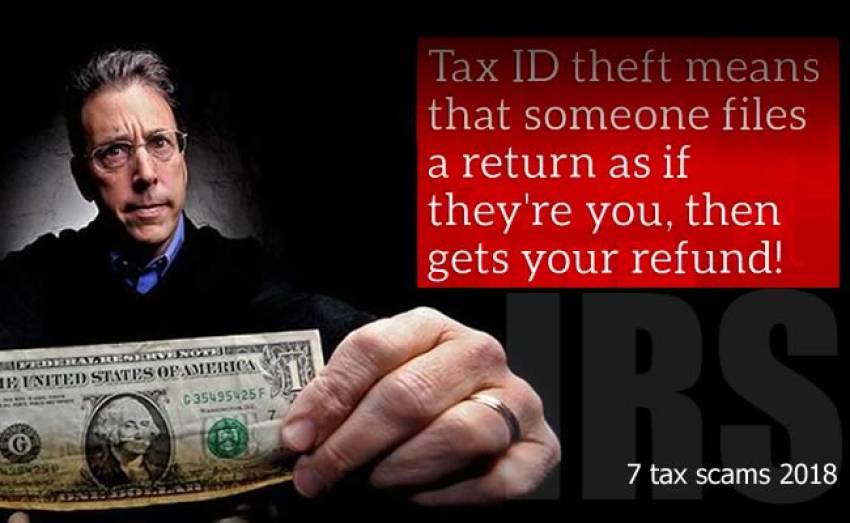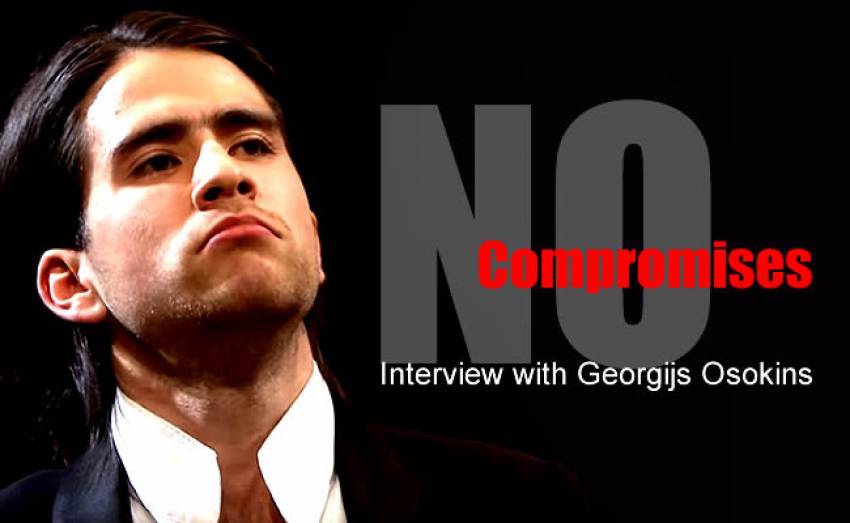
7 tax scams you need to watch out for in 2018
Team Clark is adamant that we will never write content influenced by or paid for by an advertiser.
To support our work, we do make money from some links to companies and deals on our site.
IRS scammers are working overtime this season in an attempt to steal your identity and money.
Here are a few common scams you need to be on the lookout for!
7 tax scams that wreak havoc on Americans every year
Tax-refund fraud
During the last few years, crooks have been stealing people’s Social Security numbers and then filing false returns as though they were those people.The crooks typically claim a low income with high deductions and they file electronically. Then when you go to legitimately file your return, it’s rejected by the IRS because somebody else already filed as you!
The whole mess typically takes about 10-14 months to straighten out if you’re on the receiving end of the scam.
But it turns out there’s an easy solution…You can get an Identity Protection PIN from the IRS before you file your taxes.
The IP PIN is a six-digit number that must be used on a tax return, in addition to the Social Security number, to verify the identity of a taxpayer. Once you opt into the program you can’t opt out. If you qualify, you will get a new PIN each year through the mail.
W-2 email phishing scam
This year, there’s a new twist on tax return identity theft. The IRS says crooks have been running a successful W-2 email phishing scam operation that has tricked major companies into turning over copies of W-2 forms for all employees.This is actually a CEO impostor scam, where a criminal or criminals pretend to be top company brass and ask payroll or human resources for sensitive W-2 data.
The criminals then use that info to file bogus tax returns or sell the breached data online to other criminals, according to the latest IRS warning.
Generic IRS phone scam
The premise here is that you have a surprise tax bill you need to pay immediately to the IRS or you’ll be arrested. The scammers use phone spoofing to make their number come up list as “IRS.” Because they already have the last four digits of your Social Security number, that gives them a further air of legitimacy.Here are some of their other tactics to watch out for:
- They use common names and fake IRS badge numbers.
- They send bogus IRS e-mails to support their scam.
- They call a second time claiming to be the police or department of motor vehicles, and the caller ID again supports their claim.
You’re told to submit payment either by wire or by prepaid debit card. Know this: The IRS will never contact you by phone asking for money. They communicate exclusively through snail mail.
You can listen to an actual recording a fake IRS scam call here.
Supposed refund scam
Everyone would love to get notice of a secret tax refund waiting for them, right? Well, this area is ripe for exploitation!Enrolled agent Craig Smalley wrote a piece for NerdWallet that described an encounter one of his clients had with this scam.
The client got an e-mail that looked like it legitimately came from the IRS, promising a $7,000 refund.
“All my client needed to do was enter his Social Security number and bank account information, and the IRS would directly deposit the supposed refund into his account,” Craig writes. “In this case, I could tell this was a scam because the website didn’t have an IRS.gov address.”
Fake hostage scam
A few years back, a supermarket clerk in Washington was able to stop a woman from losing thousands in a scam.
MyEdmondsNews.com reports a 54-year-old woman approached a Safeway clerk trying to buy $2,400 in prepaid cards. But the clerk smelled something fishy. Upon questioning, the woman revealed that she’d received a call from a man who claimed to be with the IRS contacting her about an unpaid tax bill.
Worse yet, the man claimed to be holding the woman’s daughter hostage and threatened to kill her if she didn’t pay up.
The clerk became suspicious and contacted the police who were able to determine the woman’s daughter was safe, and that this was all just a horrible scam.
First off, kudos to this employee who took time to more than serve this customer and save the woman’s money. Second, kudos to the police for stepping in so quickly. But as always, the criminal was not caught.
The snail mail scam
Because the taxes you file this year look back to 2017, it’s possible we could still see scams tied to the Affordable Care Act (aka Obamacare).Case in point: The snail mail scam. In this scam, you get a fake tax bill in the mail which looks exactly like a legitimate communication from the IRS. It asks you to pay the penalty for not having health insurance.
According to the IRS, criminals across the country are sending fraudulent versions of CP2000 notices, which are letters that inform taxpayers about discrepancies on their tax return.
The fact that this one comes through mail makes it tricky and likely to foul up a lot of people. However, the IRS says there are ways for potential victims to spot and avoid fake notices demanding payment.
Here are a few warning signs to look out for:
- Appears to be issued from an address in Austin, TX.
- Says the issue is related to the Affordable Care Act and requests information regarding the most recent year of coverage.
- Lists the letter number in the payment voucher as 105C.
- Requests checks be made out to IRS and sent to the “Austin Processing Center” at a post office box.
IRS iTunes scam
USAToday reported a 20-year-old college student was duped by someone claiming to represent the IRS into putting $500 on three separate iTunes cards and $262 on a fourth, using her debit card.Why would the student do this? Because she was threatened with arrest.
The scammers call persistently and also may spoof 911 calling your phone as well, according to the report.
With the iTunes gift card scam, the thieves ask you to put money on the card and then read them the 16-digit code off the back. That allows them to quickly access the cash in a way that’s untraceable in most cases.
Tax scams are no joke — here’s what you need to know
Who is Clark Howard?
Clark Brian Howard is a popular consumer expert and host of the nationally syndicated Clark Howard Show.Life and career
Howard, who grew up in Atlanta, Georgia, the son of Bernard and Joy Garson Howard (May 13, 1924 – June 5, 2016), has been a nationally syndicated radio host since 1989, teaching consumers ways to "save more, spend less and avoid rip-offs." The Clark Howard Show is heard every day on more than 200 radio stations throughout North America, and airs from News/Talk WSB, WSB AM/WSBB FM in Atlanta. He is a frequent consumer expert guest on other talk, variety and news programs.
Howard's first career was in the travel agency business. Howard attended the Westminster Schools in Atlanta before graduating from the American University in 1976 with a BA in Urban Government. He went on to receive his Master of Business Administration degree from Central Michigan University in 1977. In 1987, he retired from the travel agency business he founded in 1981 and began giving travel advice in guest appearances on Atlanta radio. His segments were so popular that he was soon given his own radio show. In 1991, Howard also became a consumer affairs TV reporter for WSB-TV, the local ABC affiliate. In 1993, he founded the Consumer Action Center to have volunteers answer consumer questions off the air. Howard's website followed in 1997, and in 1998 his show went into syndication.
Howard explained on air that he was joining the Georgia State Defense Force (an unarmed, non-federal branch of the Georgia Department of Defense) following the September 11 attacks. He attends monthly training workshops around the state as part of his service, and has performed medical evacuation work in New Orleans following Hurricane Katrina.
In 2008, Howard was diagnosed with a "little league" cancer of the prostate. He made it public on WSB-TV on February 18, 2009. He gave another update three months later on his Web site.
In August 2017, Howard escaped serious injury from a car accident. While walking across a parking lot, he spotted a car backing towards him at high speed after hearing a woman screaming. Recalling a story he read in the news, he jumped in the air to lessen the severity of the impact and thus was only grazed by the vehicle, suffering only minor pain in his neck and shoulder, but no cuts or bruises.
















